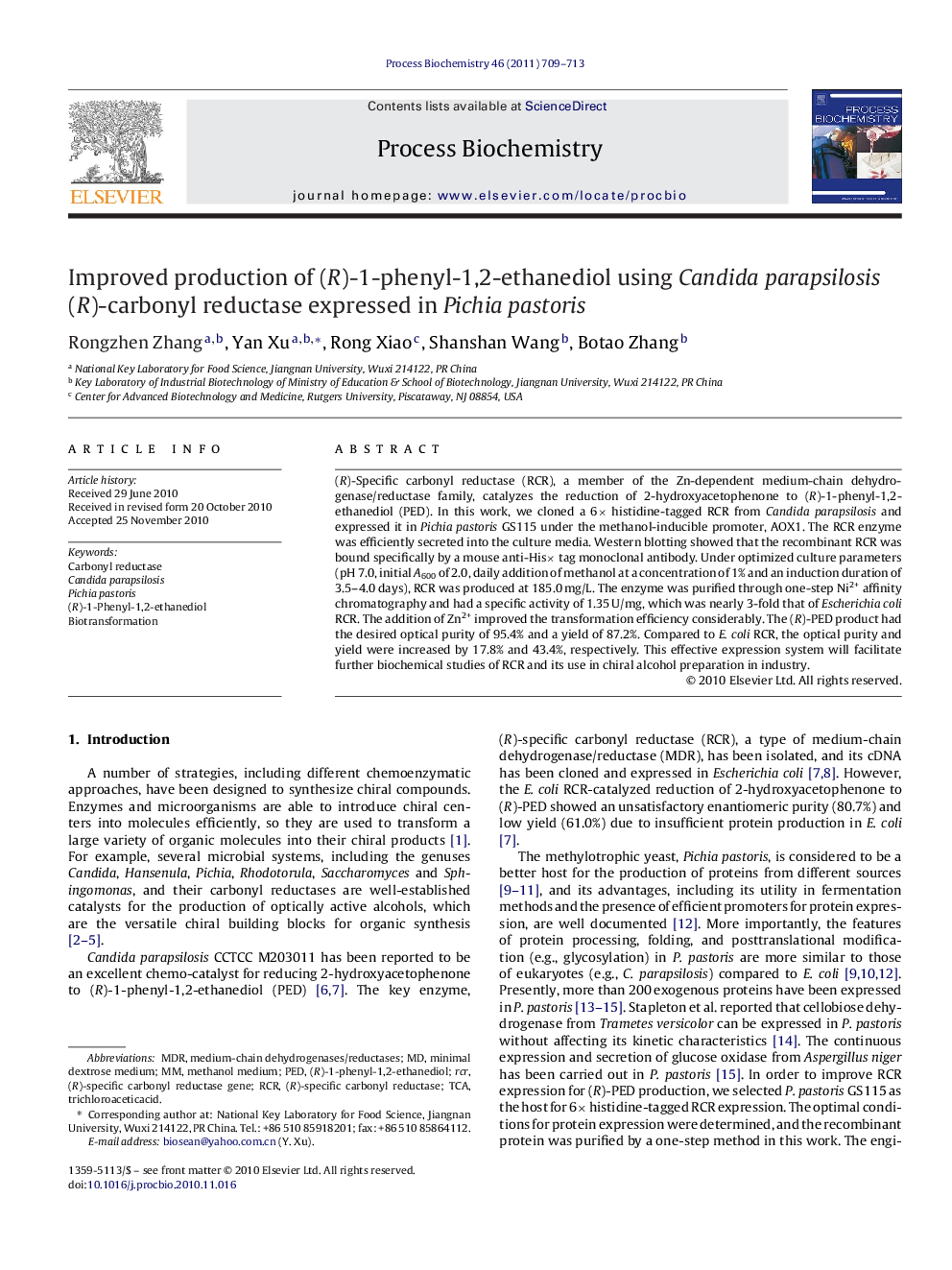| Article ID | Journal | Published Year | Pages | File Type |
|---|---|---|---|---|
| 10235996 | Process Biochemistry | 2011 | 5 Pages |
Abstract
(R)-Specific carbonyl reductase (RCR), a member of the Zn-dependent medium-chain dehydrogenase/reductase family, catalyzes the reduction of 2-hydroxyacetophenone to (R)-1-phenyl-1,2-ethanediol (PED). In this work, we cloned a 6à histidine-tagged RCR from Candida parapsilosis and expressed it in Pichia pastoris GS115 under the methanol-inducible promoter, AOX1. The RCR enzyme was efficiently secreted into the culture media. Western blotting showed that the recombinant RCR was bound specifically by a mouse anti-Hisà tag monoclonal antibody. Under optimized culture parameters (pH 7.0, initial A600 of 2.0, daily addition of methanol at a concentration of 1% and an induction duration of 3.5-4.0 days), RCR was produced at 185.0 mg/L. The enzyme was purified through one-step Ni2+ affinity chromatography and had a specific activity of 1.35 U/mg, which was nearly 3-fold that of Escherichia coli RCR. The addition of Zn2+ improved the transformation efficiency considerably. The (R)-PED product had the desired optical purity of 95.4% and a yield of 87.2%. Compared to E. coli RCR, the optical purity and yield were increased by 17.8% and 43.4%, respectively. This effective expression system will facilitate further biochemical studies of RCR and its use in chiral alcohol preparation in industry.
Keywords
Related Topics
Physical Sciences and Engineering
Chemical Engineering
Bioengineering
Authors
Rongzhen Zhang, Yan Xu, Rong Xiao, Shanshan Wang, Botao Zhang,
